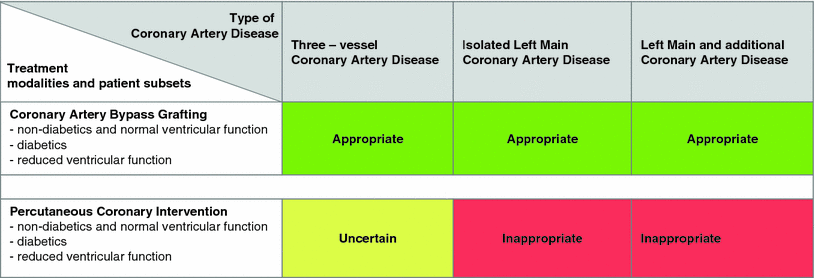The latest SYNTAX results extend CABG’s superiority over PCI. SYNTAX was an 1800-patient trial, randomizing patients with left main coronary disease and/or three-vessel disease to either CABG or PCI using the Taxus DES. This follow-up analysis further clarifies the limited role of PCI in the treatment of triple vessel CAD and/or LMain Stenosis, while the differences have become more obvious. Key …
PCI for STEMI should be limited to infarct related coronary arteries
NEW YORK (From Reuters Health) – Performing percutaneous coronary interventions (PCI) in non-infarct-related coronary vessels along with primary PCI for ST-segment elevation myocardial infarction (STEMI) appears to jeopardize patient survival, Canadian researchers reported online June 8 in the European Heart Journal. Despite guidelines to the contrary, some 10% of STEMI patients with multi-vessel coronary artery disease had non-culprit coronary interventions …
APEX-AMI trial Analysis
Although 40-65% of patients admitted for treatment of an acute heart attack with percutaneous coronary intervention (PCI) have multiple blockages, current guidelines strongly suggest to limit the procedure to the blocked artery (the culprit vessel). PCI in “Non-culprit coronary arteries” is associated with a significantly increased risk of dying, as Armstrong and colleagues of the APEX-AMI trial recently published in …
Patients with 3-vessel disease should be operated!
Point-Counter point 1 Best way to revascularize patients with main stem and three-vessel lesions. Patients should be operated! [i] An abundance of clinical trials has proven that coronary artery bypass surgery (CABG) is superior to Stenting (PCI) in almost every type of multivessel or left main Coronary Artery Disease (CAD.These days however, even the most complex coronary lesions are treated with …
CAS vs CEA (the CREST study)
“Primary composite outcomes” (lumping complications together into one composite complication), allows shading of negative results that only become visible with careful study of a publication. In the CREST study described below, the authors combined procedural death, stroke and myocardial infarction together into a composite complication. In doing so they found no outcome difference between Carotid artery stenting (CAS) and Endarterectomy …
Medical Therapy for Stable Coronary Artery Disease
Yet another article compares Medical therapy with PCI (Stenting) in patients with stable Coronary Artery Disease. This time the focus was on control of angina symptoms, rather than survival. However, its conclusions were similar in that in this group of stable patients, medical therapy alone has become just as effective as PCI (75% vs. 77% control of symptoms). What surprised …
CT Coronary Angiography comes of age!
A non-invasive and much cheaper test for coronary disease is available when a diagnosis of CAD is uncertain. Until recently, CT Coronary Angiography (CTCA)could not adequately identify coronary artery blockages. While not accurate enough to provide a pathway necessary to identify and treat these lesions, it avoids the risks and high costs of cardiac catherization, an important benefit. CTCA is most …
Low Diagnostic Yield of Elective Coronary Angiography
(From: Low Diagnostic Yield of Elective Coronary Angiography, Manesh R. Patel, M.D.,et al.,N Engl J Med 362;10, 886-895) …slightly more than one third of patients without known disease who underwent elective cardiac catheterizationhad obstructive coronary artery disease. The authors analyzed data from a national registry on cardiac catheterization, reporting only 38% of elective, diagnostic coronary angiograms showed obstructive lesions, and 39% of …
Unnecessary procedures
In a study, published on-line in the journal Circulation on April 13, 2010, cardiologists were asked under what circumstances they would order a cardiac catheterization. 29% of physicians ordered the test for other than clinical reasons, foremost amongst them malpractice concerns. About 25% of the doctors ordered more tests than were necessary, driving up costs. Others did it because of …
Healthcare Costs
The following link from The Kaiser Family Foundation calculates the costs for persons aged 19-64 who have to buy their own health insurance. As a drawback of this calculator it doesn’t compare with costs under the previous system: Calculate the cost of your Healthcare under the new Healthcare Reform Bill




